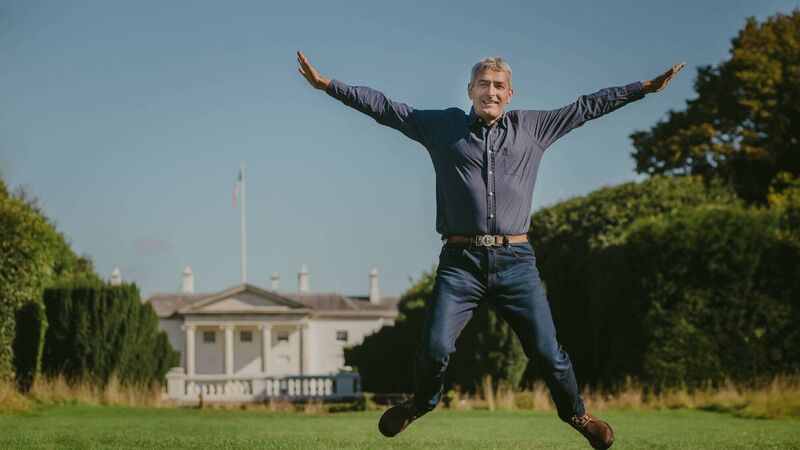David McCullagh on that 'excruciating apology' and why you always need a plan B

David McCullagh: star jumping into the world of writing for young people
Carlsberg don’t do days at RTÉ but if they did, muses broadcaster and author David McCullagh, they would look like that day in 2005 when he got to interview Bruce Springsteen, have a pint and chicken wings in the Harbourmaster bar on Custom House Dock, and then go to the gig at the 3Arena.
While they say you should never meet your heroes, the American singer-songwriter did not disappoint. That is crystal clear from the photograph McCullagh, looking uncharacteristically star-struck alongside an ultra-cool Springsteen, has posted as his Twitter profile picture.




